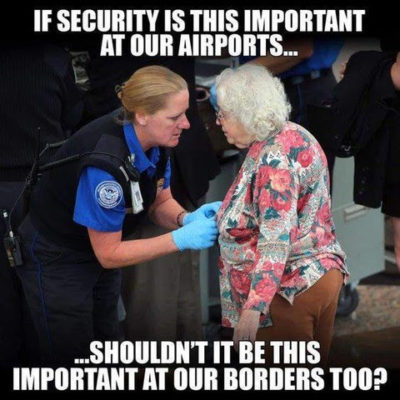Where are the Democratic challengers to President Trump on foreign policy? They all argue his unorthodox foreign policy approach endangers American interests. With that said where are they on foreign policy?
Clear divisions have emerged on how they would approach U.S. interests abroad. They differ on trade and whether to reverse Trump’s tariffs on imports from China. Here is a look at the foreign policy positions of the remaining eight Democratic candidates.
JOE BIDEN
Biden supports shoring up traditional alliances such as the North Atlantic Treaty Organization (NATO). He says he will pursue an extension of the New START nuclear arms control treaty with Russia. Biden supports leaving some U.S. troops in the Middle East. He talks a lot about his past positions. He talks very little about commitments in the present, let alone for the future.
BERNIE SANDERS
Since the Iran strike, Bernie has trumpeted his anti-war credentials. Bernie says the United States should re-enter the nuclear agreement with Iran. Sanders opposed the North American Free Trade Agreement (NAFTA), which he said led to job losses. He also opposes the U.S.-Mexico Canada Agreement (USMCA), which replaces NAFTA, saying it has only “modest improvements.” Sanders expresses solidarity with left-wing governments. Currently he’s drawing a distinction between his democratic socialism (a euphemism for Communist Party USA) and the government of Venezuela’s Nicolas Maduro. He is calling Maduro a “vicious tyrant.”
ELIZABETH WARREN
Lieawatha has pledged to create a foreign policy with a focus on creating and defending jobs in the United States. In support of that she is going to “… bring our troops home” from Afghanistan. You can be the judge of the logical consistency. Fauxcahontas was the first major candidate to come out for impeachment. Warren has opposes “trade wars” and supports the USMCA, though she agrees with Sanders that it is only a “modest improvement.”
PETE BUTTIGIEG
Buttigieg pledges to rejoin the Iran nuclear deal and the Paris climate accord. He argues for scrapping the authorization for use of military force passed by Congress following the Sept. 11, 2001. He argues it has become a “blank check.” Buttigieg supports the USMCA trade deal to replace NAFTA. He would also withhold U.S. funds from Israel if it annexes West Bank settlements.
MICHAEL BLOOMBERG
Money Mike has not yet laid out a detailed foreign policy plan. He pledges to be tough on Iran and to strongly support Israel. Bloomberg would never put conditions on U.S. military aid to Israel. He opposes the Iran nuclear deal due to insufficient security safeguards for Israel. He would pursue a different deal. Bloomberg would support an Israel-Palestine peace deal if it creates an independent Palestinian state. He also conditions support on it ensuring Israel’s security and preserving its Jewish character. Bloomberg has business links to China. He argues against trade war with Beijing. He is cites the need to work with China to tackle climate change in support of his position.
AMY KLOBUCHAR
Klobuchar believes the United States should take a tough approach to Russia. Klobuchar would do this by strengthening sanctions, committing to NATO. On China she would speak out about the treatment of Uighur Muslims and the crackdown on protesters in Hong Kong. Klobuchar opposes the Iraq war. She says she would leave some troops in the Middle East. In Afghanistan, “some would remain for counterterrorism and training.” Klobuchar would restart nuclear negotiations with Iran and she supports the USMCA.
ANDREW YANG
Yang proposes a “reverse boot camp” to ,make military service members ready to return to civilian life. His foreign policy initiatives include a proposal to develop new encryption standards. He wants to invest in quantum technology to stay ahead of geopolitical rivals. Yang also has said the decision to launch a nuclear attack should not rest solely with the president. His proposal is that the vice president also verify such calls.
TOM STEYER
Steyer has set out few specific policies on national security. He would commit to U.S. alliances like NATO. Steyer pledges to declare climate change a national emergency. He will make the United States carbon neutral by 2045. Steyer will immediately rejoin the Paris climate agreement. He will provide $200 billion in U.S. aid to address environmental issues globally.
Conclusion
Will these people’s foreign policies make you as safe, or safer than you are today? Will what they propose cost you money or not? Can America afford what they propose? Is what they propose advancing America’s interests? Is trade an issue effecting your budget today? Will the foreign and trade policies of these people going to help or hurt your budget? Hopefully this helps let you know where are the Democratic challengers to President Trump are on foreign policy.
